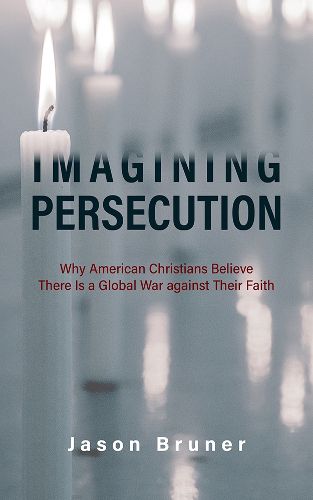Readings Newsletter
Become a Readings Member to make your shopping experience even easier.
Sign in or sign up for free!
You’re not far away from qualifying for FREE standard shipping within Australia
You’ve qualified for FREE standard shipping within Australia
The cart is loading…






Many American Christians have come to understand their relationship to other Christian denominations and traditions through the lens of religious persecution. This book provides a historical account of these developments, showing the global, theological, and political changes that made it possible for contemporary Christians to claim that there is a global war on Christians. This book, however, does not advocate on behalf of particular repressed Christian communities, nor does it argue for the genuineness (or lack thereof) of certain Christians’ claims of persecution. Instead, this book is the first to examine the idea that there is a ‘global war on Christians’ and its analytical implications. It does so by giving a concise history of the categories (like ‘martyrs’), evidence (statistics and metrics), and theologies that have come together to produce a global Christian imagination premised upon the notion of shared suffering for one’s faith. The purpose in doing so is not to deny certain instances of suffering or death; rather, it is to reflect upon the consequences for thinking about religious violence and Christianity worldwide using terms such as a ‘global war on Christians.
$9.00 standard shipping within Australia
FREE standard shipping within Australia for orders over $100.00
Express & International shipping calculated at checkout
Many American Christians have come to understand their relationship to other Christian denominations and traditions through the lens of religious persecution. This book provides a historical account of these developments, showing the global, theological, and political changes that made it possible for contemporary Christians to claim that there is a global war on Christians. This book, however, does not advocate on behalf of particular repressed Christian communities, nor does it argue for the genuineness (or lack thereof) of certain Christians’ claims of persecution. Instead, this book is the first to examine the idea that there is a ‘global war on Christians’ and its analytical implications. It does so by giving a concise history of the categories (like ‘martyrs’), evidence (statistics and metrics), and theologies that have come together to produce a global Christian imagination premised upon the notion of shared suffering for one’s faith. The purpose in doing so is not to deny certain instances of suffering or death; rather, it is to reflect upon the consequences for thinking about religious violence and Christianity worldwide using terms such as a ‘global war on Christians.